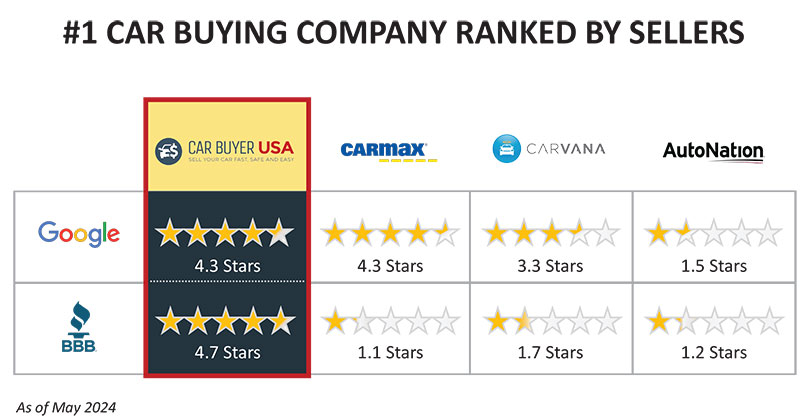
Even in the simplest of content, nearly every estate involves a car, truck, van, or SUV. Many times an estate includes a vehicle that is paid off and a beneficiary is named in the will. When this happens additional documentation is required for the person named to claim the asset. Prior to deciding to sell, keep, or donate an estate vehicle, the first thing a person needs is the car title to legally transfer ownership. How to locate and process an estate car title after death can be a headache, or if lucky, a simple one. If you want to wait and you are interested in finding out the value of your inherited vehicle, get started with an instant cash offer now.
The Title
Once the legal owner is deceased, not having a valid car title results in a stall and you cannot register the vehicle, sell your car, or drive the car. A valid car, truck, van, or SUV – or any automobile – title must be presented to the local Department of Motor Vehicles along with other documentation, such as the death certificate and paperwork showing the new owner has a legal claim, to transfer ownership.
“No one should drive a deceased person's vehicle until the Probate Court issues an order transferring the vehicle to that individual and the vehicle is then titled and insured to that individual. The estate and driver are both potentially liable and will be sued if an accident takes place. You may also be liable to the estate for a diminution in value claim if the vehicle is worth less due to your driving it and you eventually do not receive the vehicle as part of your distributive share.” ~estate planning attorney
Locating the title
If the title is not in the vehicle’s console or glove compartment – which hopefully it is not because the car title should never be stored inside the vehicle in case it is stolen – starts with searching all properties of the deceased owner. If you would like to sell your car quick and get help through the process of an estate vehicle, we buy cars and help you sell yours. Get a high instant cash offer in as little as 20-seconds now.
Tips
- First, check all obvious places.
- Leave no stone unturned in the vehicle.
- Expand your search.
- Check every place, area, location, and every nook and cranny,
Has the title been processed?
When you sell your car from an estate, a relatively easy process can get complicated if the title has not been processed; especially if it is a collector car. During World War II and the Great Depression, most times cars were purchased most times with cash, so depending on if the deceased had titled and registered it, there may not be a title for the estate vehicle. If this is the case, or if you are not sure if there is a legal title exists, contact the local Department of Motor Vehicles to inquire on what needs to be done. If you have the VIN number you can possibly run the number on DMV’s website, or run a CarFax report.
When There Is No Title – What To Do
If you are unsuccessful in locating a legal title, you will need to contact the local DMV to find out what needs to be done and what documentation is required to acquire one and legally register the estate vehicle transferring ownership over.
- If you do not have a registration card for the vehicle, write down the VIN to take with you to DMV.
- You will need a notarized copy of the will or the court-issued document showing you are the vehicle’s legal heir.
- Death verification document or a death certificate must be presented to DMV.
- A valid government issued photo I.D.
- Credit card or cash for the fees.
Transfer Deceased Ownership Over to a New Owner after a Death
It is pretty much the same as mentioned above. What you will need:
- Title
- Death verification document or a death certificate must be presented to DMV.
- A valid government issued photo I.D.
- You will need a notarized copy of the will or the court-issued document showing you are the vehicle’s legal heir.
- Credit card or cash for the fees.
Like we mentioned above, even in the simplest of content, nearly every estate involves a car, truck, van, or SUV. Many times an estate includes a vehicle that is paid off and a beneficiary is named in the will. When this happens, additional documentation will definitely be required by the beneficiary to claim the asset. To avoid issues, it is a good idea to be proactive and secure all paperwork needed prior to selling, keeping, or when donating an estate vehicle. The new owner must apply for a new title to legally transfer ownership. How to locate and process an estate car title after death can be a headache and take some time. If you need any help and you want to sell your car quick you inherited, give us a call. We buy cars fast, safe, and easy in every Continental U.S. state 24/7. You can get a high instant cash offer in as little as 20-seconds; when we agree on a quote there can be cash in your bank in a few days or less. If the vehicle is a classic, give us a call to let us prove we give you the highest offer you will find.


